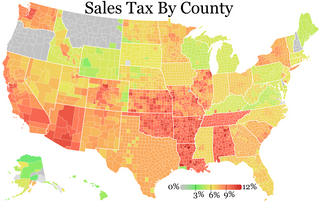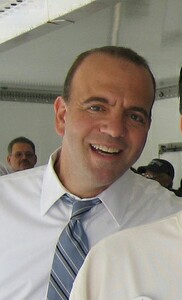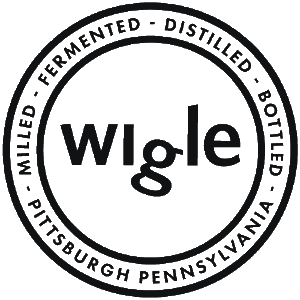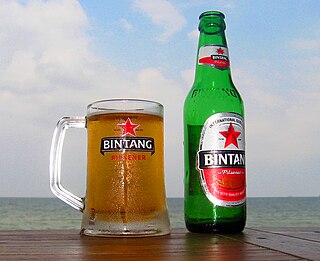Related Research Articles

Allegheny County is a county in Pennsylvania, United States. It is located in Southwestern Pennsylvania. As of the 2020 census, the population was 1,250,578, making it the state's second-most populous county, after Philadelphia County. Its county seat and most populous city is Pittsburgh, Pennsylvania's second most populous city. Allegheny County is part of the Pittsburgh, PA metropolitan statistical area and the Pittsburgh media market.

The Whiskey Rebellion was a violent tax protest in the United States beginning in 1791 and ending in 1794 during the presidency of George Washington. The so-called "whiskey tax" was the first tax imposed on a domestic product by the newly formed federal government. Beer was difficult to transport and spoiled more easily than rum and whiskey. Rum distillation in the United States had been disrupted during the American Revolutionary War, and whiskey distribution and consumption increased afterwards. The "whiskey tax" became law in 1791, and was intended to generate revenue for the war debt incurred during the Revolutionary War. The tax applied to all distilled spirits, but consumption of American whiskey was rapidly expanding in the late 18th century, so the excise became widely known as a "whiskey tax". Farmers of the western frontier were accustomed to distilling their surplus rye, barley, wheat, corn, or fermented grain mixtures to make whiskey. These farmers resisted the tax. In these regions, whiskey often served as a medium of exchange. Many of the resisters were war veterans who believed that they were fighting for the principles of the American Revolution, in particular against taxation without local representation, while the federal government maintained that the taxes were the legal expression of Congressional taxation powers.

In the United States, a dry county is a county whose government forbids the sale of any kind of alcoholic beverages. Some prohibit off-premises sale, some prohibit on-premises sale, and some prohibit both. Dozens of dry counties exist across the United States, mostly in the South.
The Pennsylvania Liquor Control Board (PLCB) is an independent government agency that manages the beverage alcohol industry in Pennsylvania by administering the Pennsylvania Liquor Code. It is responsible for licensing the possession, sale, storage, transportation, importation and manufacture of wine, spirits and malt or brewed beverages in the commonwealth, as well as operating a system of liquor distribution (retailing) and providing education about the harmful effects of underage and dangerous drinking.

Sales taxes in the United States are taxes placed on the sale or lease of goods and services in the United States. Sales tax is governed at the state level and no national general sales tax exists. 45 states, the District of Columbia, the territories of Puerto Rico, and Guam impose general sales taxes that apply to the sale or lease of most goods and some services, and states also may levy selective sales taxes on the sale or lease of particular goods or services. States may grant local governments the authority to impose additional general or selective sales taxes.

The Texas Alcoholic Beverage Commission, or TABC, is a Texas public agency responsible for regulating, inspecting, and taxing the production, sale, and use of alcoholic beverages within the state. The agency was established in 1935 and is headquartered in Austin.

Daniel Onorato is an American Democratic politician from the state of Pennsylvania. He served as the chief executive of Allegheny County from 2004 to 2012, and in 2010, he was the Democratic nominee for governor. He lost to State Attorney General Tom Corbett in the general election. Onorato is currently the chief corporate affairs officer at Highmark Health.

Hugh Henry Brackenridge was an American writer, lawyer, judge, and justice of the Supreme Court of Pennsylvania.
John Neville was an American military officer, land speculator, and local official who served in the French and Indian War, Lord Dunmore's War and the American Revolutionary War. As an early federal tax collector he became a central figure in the Whiskey Rebellion.
David Bradford (1762–1808) was a successful lawyer and deputy attorney-general for Washington County, Pennsylvania in the late 18th century. He was infamous for his association with the Whiskey Rebellion, and his fictionalized escape to the Spanish-owned territory of West Florida with soldiers at his tail. He was later pardoned by President John Adams for his actions. Today, his family's home in Washington, Pennsylvania is a national landmark and museum.

The alcohol laws of Kansas are among the strictest in the United States, in sharp contrast to its neighboring state of Missouri, and similar to its other neighboring state of Oklahoma. Legislation is enforced by the Kansas Division of Alcoholic Beverage Control.

The alcohol laws of Pennsylvania contain many peculiarities not found in other states, and are considered some of the strictest regulations in the United States.
Land value taxation has a long history in the United States dating back from Physiocrat influence on Thomas Jefferson and Benjamin Franklin. It is most famously associated with Henry George and his book Progress and Poverty (1879), which argued that because the supply of land is fixed and its location value is created by communities and public works, the economic rent of land is the most logical source of public revenue. and which had considerable impact on turn-of-the-century reform movements in America and elsewhere. Every single state in the United States has some form of property tax on real estate and hence, in part, a tax on land value. However, Pennsylvania in particular has seen local attempts to rely more heavily on the taxation of land value.

The state laws governing alcoholic drinks in New Jersey are among the most complex in the United States, with many peculiarities not found in other states' laws. They provide for 29 distinct liquor licenses granted to manufacturers, wholesalers, retailers, and for the public warehousing and transport of alcoholic drinks. General authority for the statutory and regulatory control of alcoholic drinks rests with the state government, particularly the Division of Alcoholic Beverage Control overseen by the state's Attorney General.

Alcohol laws are laws in relation to the manufacture, use, being under the influence of and sale of alcohol or alcoholic beverages that contains ethanol. Common alcoholic beverages include beer, wine, (hard) cider, and distilled spirits. The United States defines an alcoholic beverage as "any beverage in liquid form which contains not less than one-half of one percent of alcohol by volume", but this definition varies internationally. These laws can restrict those who can produce alcohol, those who can buy it, when one can buy it, labelling and advertising, the types of alcoholic beverage that can be sold, where one can consume it, what activities are prohibited while intoxicated., and where one can buy it. In some cases, laws have even prohibited the use and sale of alcohol entirely, as with Prohibition in the United States from 1920 to 1933.
The Alcohol laws of Tennessee are distinct in that they vary considerably by county.

Wigle Whiskey is an artisan small batch whiskey distillery in the Strip District neighborhood of Pittsburgh. Wigle Whiskeys are the flagship products of the Pittsburgh Distilling Company, LLC, which is entirely family owned and operated.

Alcohol in Indonesia refers to the alcohol industry, alcohol consumption and laws related to alcohol in the South East Asian country of Indonesia. Indonesia is a Muslim majority country, yet it is also a pluralist, democratic and secular nation. These social and demographic conditions led to Islamic parties and pressure groups pushing the government to restrict alcohol consumption and trade, while the government carefully considers the rights of non-Muslims and consenting adults to consume alcohol, and estimates the possible alcohol ban effects on Indonesian tourism and the economy.
References
- 1 2 3 "Allegheny County Alcoholic Beverage Tax Official Rules and Regulations" (PDF). www.alleghenycounty.us. Allegheny County, Pennsylvania. Archived from the original (PDF) on 2010-11-13.
- ↑ Young, Chris (October 25, 2007). "Whiskey Rebellion II". Pittsburgh City Paper .
- ↑ "Drink Tax Opponents Kick Off "Whiskey Rebellion"". WPXI . June 17, 2008. Archived from the original on 2011-06-07. Retrieved 2009-10-13.
- ↑ "State Supreme Court bars Allegheny County drink-tax referendums". Pittsburgh Post-Gazette . October 3, 2009.
- ↑ Brandolph, Adam (December 4, 2009). "Pittsburgh mayor wants cut of Allegheny County's 7 percent drink tax". Pittsburgh Tribune Review .[ permanent dead link ]
